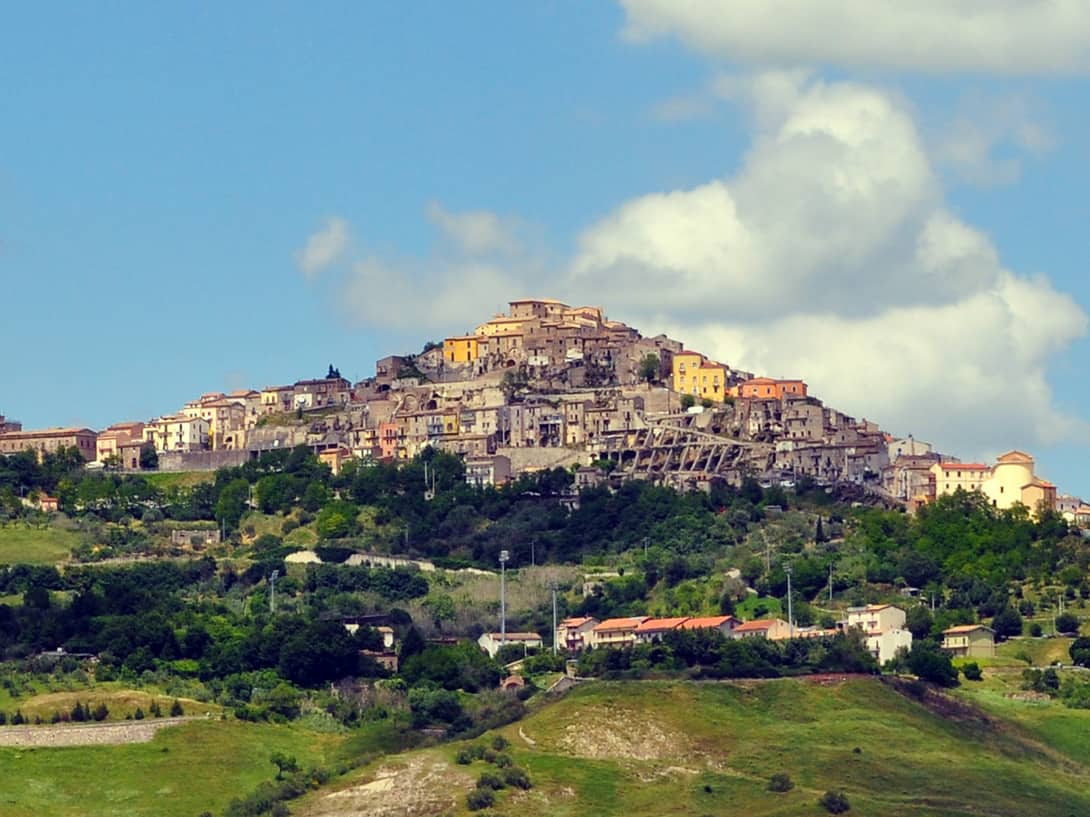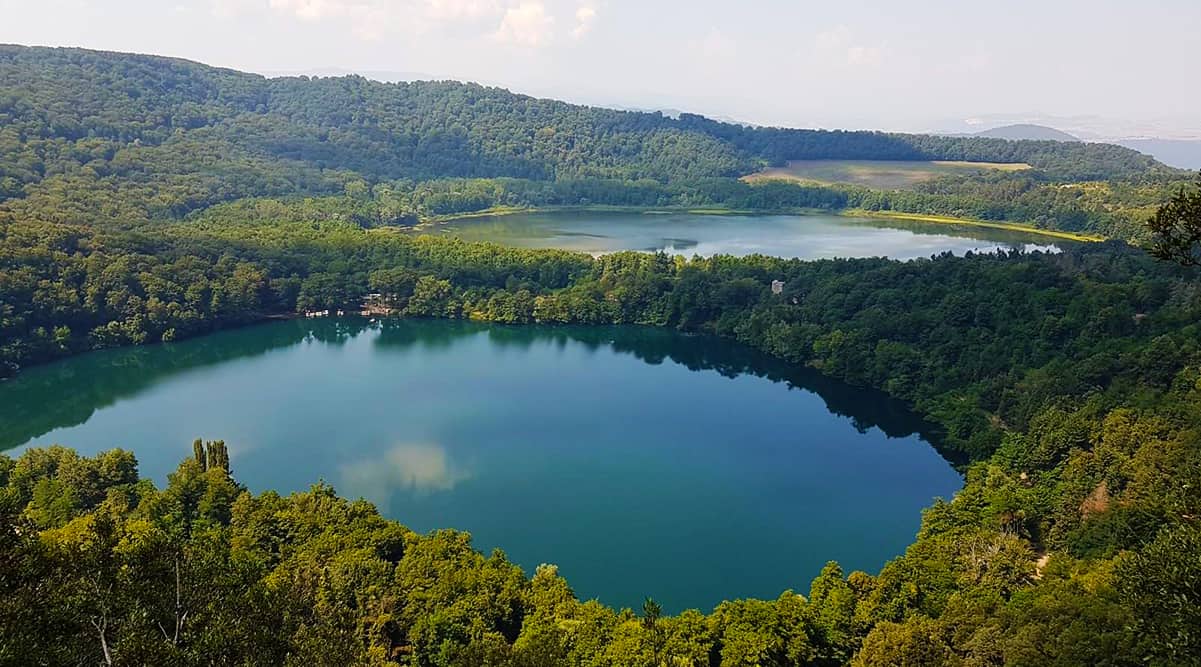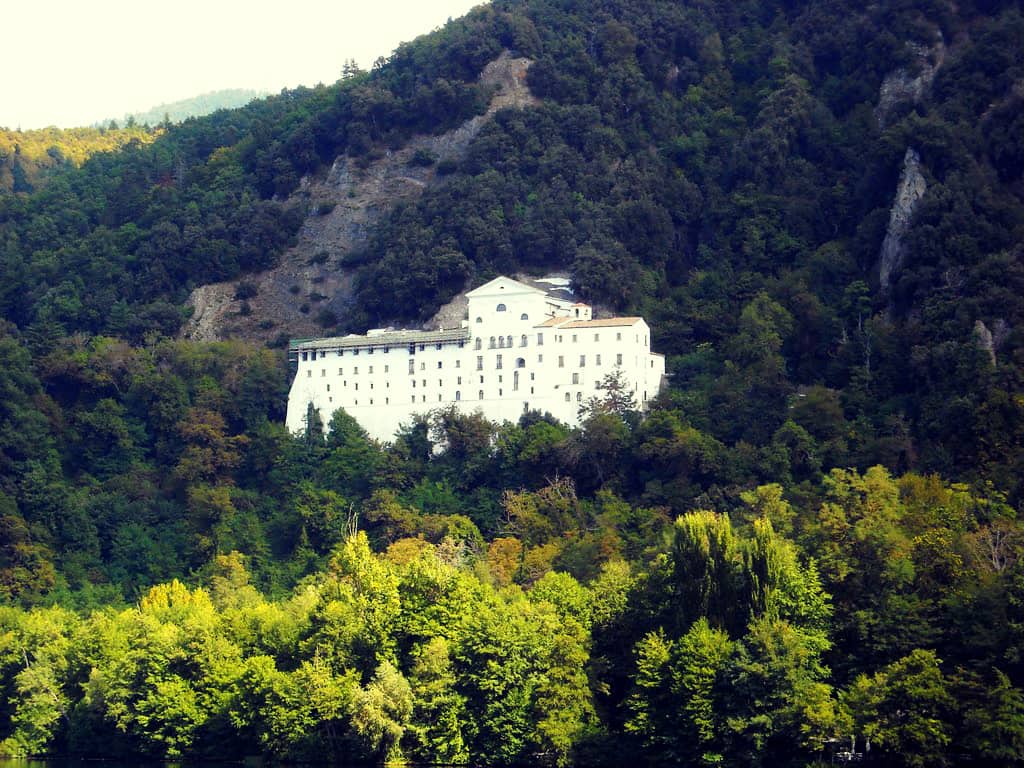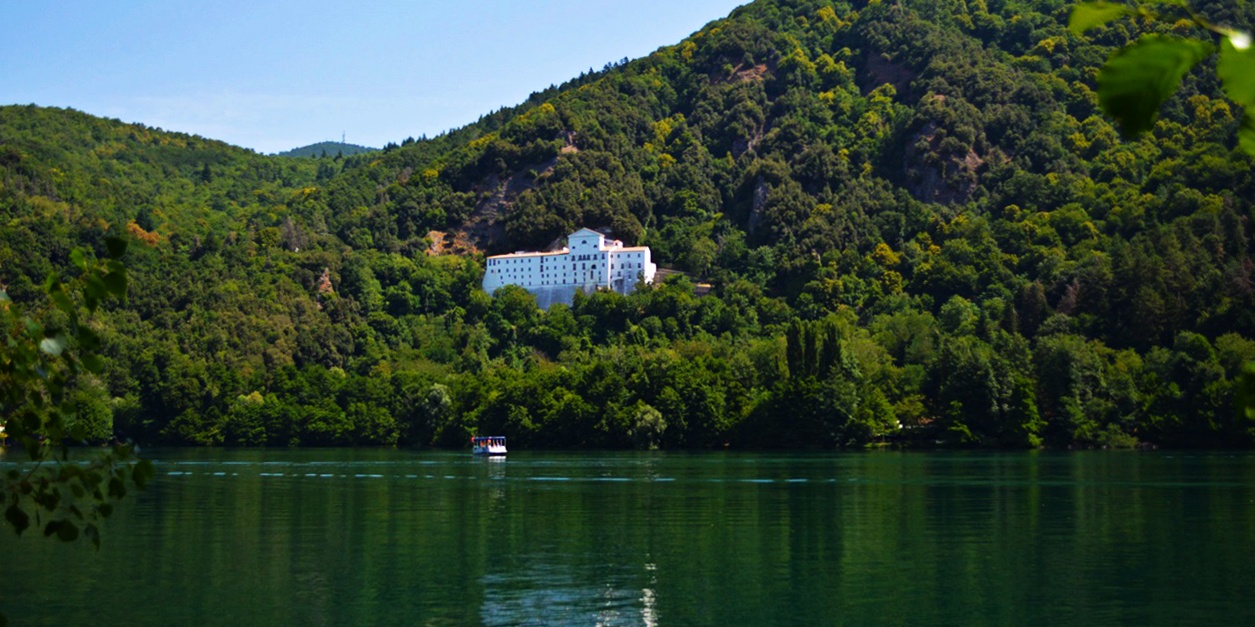Campania and Basilicata are among the most fascinating and mysterious regions of the Italian peninsula. Regions rich in history, culture, landscape beauties and succulent gastronomic traditions. We have prepared for you a short itinerary "on the border" which, through its few but important stages, will lead you to the desired final destination. Here, after satisfying your mind and spirit with splendid landscapes and picturesque monuments, you will find the well-deserved refreshment for your limbs and the right satisfaction for your palate. Ready, let's go!
1 - Calitri: on the banks of the Ofanto, between History and Gastronomy

Our journey begins right on the border between Campania and Basilicata. In fact, we will visit Calitri together, in the province of Avellino, among the most important towns of Upper Irpinia. Located on a hill roughly 600 meters high, Calitri is crossed by the Ofanto river, which will be one of the companions of our journey. Calitri is a country of ancient origins, a country rich in history as evidenced by its monuments and its many churches. In fact, the churches of San Canio, the Immaculate Conception, Santa Lucia, San Berardino and Sant'Antonio Abate are unmissable. But above all, Calitri is a country of great culinary traditions. Absolutely to taste are some typical specialties such as Cannazze, a sort of broken ziti and Cingul, very similar to the Apulian cavatelli. Dishes to taste seasoned with ragù and grated pecorino. And the cheeses, among the many delicacies, are among the best delicacies of Calitri: Caciotto irpino, Caciocavallo irpino, Manteca, Caletrana, these are some of the dairy delicacies of the area. But now let's abandon Calitri and cross the Campania border. And we will postpone the pleasures of the table until later.
2 - The Monticchio lakes: the two brother lakes

Your exciting journey continues in the province of Potenza, in Monticchio, a fraction of the municipalities of Atella and Rionero in Volture. Lying on the slopes of Mount Volture, an ancient Apennine volcano, the Lucanian town is famous above all for its lakes, formed within the craters of the former volcano. The lakes of Monticchio are two, and are separated from each other by a strip of land: Lago Piccolo has roughly an area of 16 hectares, while Lago Grande extends for 38 hectares. Here you can admire the typical vegetation of the area, such as beeches, oaks and the precious aquatic water lilies and important specimens of fish fauna such as carp, perch, bristles, etc ... And after having refreshed your view with the vision of the two splendid "lakes brothers ", the next stage awaits you. Don't worry, it's not very far ...
3 - The Abbey of San Michele in Monticchio and the Museum of Natural History of Vulture

In fact, if we turn our gaze towards Mount Volture, a volcano that has been extinct for 130,000 years, we can notice the presence of a majestic architectural structure, immersed with its dazzling whiteness in the flourishing vegetation that colors the slopes of the former volcanic building. This is the Abbey (Badia) of San Michele in Monticchio. Its history began in the 8th century AD, when the first nucleus of the building was built near a cave where some Basilian monks lived. Then the Abbey was governed by the Benedictines until 1456, later by the Capuchins and, from the eighteenth century, by the Constantinian military order that administered it until the unification of Italy. Today the Abbey, which is managed by the Territorial Office of Potenza for the biodiversity of the State Forestry Corps, offers its visitors, together with the historical and artistic beauties that testify to the long and complex history of the building, also a very interesting Museum of Natural History that will tell you about the 750,000 years of history of the Vulture volcano. Medieval frescoes, eighteenth-century vestiges and wonders of nature, therefore, will make your visit a unique and unrepeatable experience.
4 - The Valle Ofanto farmhouse: the authentic flavors of Lucanian cuisine
And now, we finally reach the last station of our trip, Rapone, in the province of Potenza, a small town in the valley of the Ofanto river. Here among woods, pastures and numerous pastoral and dairy farms, you will find the much desired destination. This is the Agriturismo Valle Ofanto, the flag of excellence of traditional cuisine.
The cuisine of the Agriturismo Valle d'Ofanto, worthy epigone of the Slow Food Locande d'Italia circuit, is based on the use of the highest quality products, always in season, directly grown by the managers of the company or purchased from trusted suppliers. The policy of "zero meters" products allows the creation of splendid delicacies such as sauteed escarole, ravioli, strascinati and cannazze al ragù, dishes prepared by the skilled hands of Donato Tornillo.
Donato Tornillo, representative of Basilicata as Agrichef, has cultivated his passion for cooking since he was a child, thanks to the experience he had in "direct contact with the raw material in the home garden". Organic cuisine at zero meters, creative imagination, respect for tradition and fresh pasta make Chef Tornillo's dishes unmissable. An experience that, if you want, the landlord makes available to the little ones (and their relatives) with the precious courses of his Didactic Farm.
Thanks to its vast structure, the Valle Ofanto farmhouse also offers the possibility of hosting conferences, conventions and private ceremonies. In fact, an extraordinary swimming pool, a huge playground for the little ones, 3 bedrooms and two apartments for a total of 18 beds equipped with every comfort, are available to tourists and visitors.
So what are you waiting for? At the "end of your border trip", book a nice weekend in Valle Ofanto! In direct contact with nature, you will taste the authentic and original flavors of the Lucanian tradition!
About the author
Written on 14/07/2020



Francesco Paolo Colucci
Francesco Paolo Colucci, web editor. Art critic and historian, I collaborated with magazines such as Napoli Nobilissima and History of Art by Maurizio Calvesi, publishing some essays on the Neapolitan Baroque and I wrote critical content for several contemporary artists. Passionate about literature and poetry, I believe in the magic power of the word.